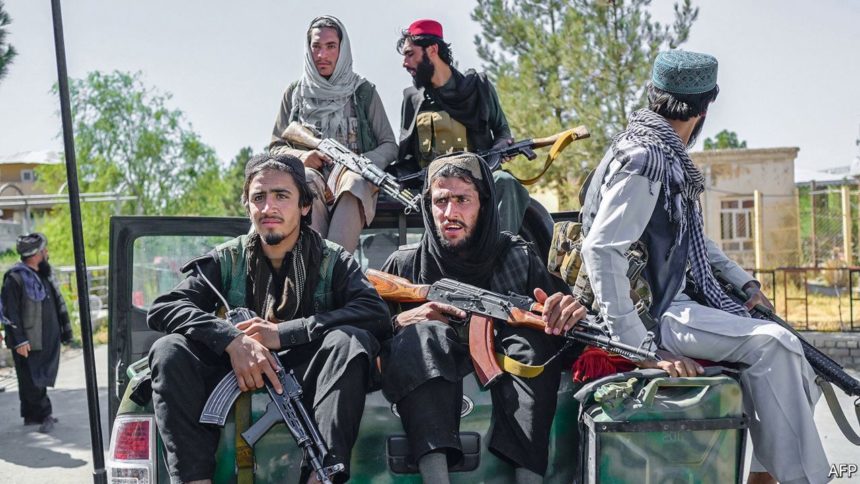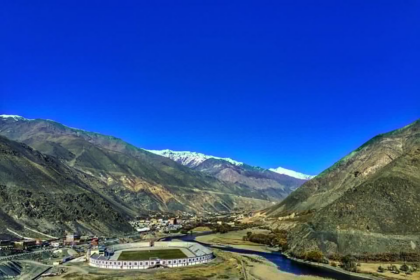The Taliban, an entity suppressing all forms of information, particularly those addressing their corruption, oppression of the people, and attacks against them, is entirely prohibited, carrying severe consequences. Consequently, the injustices and dissatisfactions existing within the Taliban remain relatively obscure. More significantly, attacks against the Taliban are not publicized unless they become unavoidably apparent, and even then, details are concealed.
The recent assault on the Taliban’s governor in Panjshir province holds immense significance. Despite its importance, the Taliban concealed its details, attempting to downplay its significance. The reality is that armed resistance attacks on the Taliban have influenced both the Taliban’s internal dynamics and their external relations. Domestically, these attacks have shattered the morale of the Taliban. Despite projecting an image of defiance and toughness, claiming they can maintain control through massacre, oppression, and coercion, the Taliban has realized that suppression alone cannot sustain their dominance. Thus, differing perspectives have emerged within the Taliban on how to address these challenges.
Previously, Taliban authorities demanded political opposition pledge allegiance without engaging in any political activities within Afghanistan. However, recently, Qari Fasihuddin, the Taliban’s Chief of Army, stated that those opposing the Taliban government should abandon war and resolve their issues through dialogue and negotiation. This statement indicates a shift in the Taliban’s approach, introducing the idea of “dialogue and negotiation.” It becomes evident that the attacks by the resistance forces on the Taliban have influenced them to consider these forces as opponents and seek dialogue and negotiation with them.
In this context, it is advisable for the resistance forces, including the Freedom Front, National Resistance Front, and several other factions, to conduct strategic leadership sessions to maximize the intensity and effectiveness of their attacks against the Taliban. They should never cease these attacks, as they are currently in the early stages, and the Taliban intends to use negotiations as a means to deceive or tempt the resistance forces, aiming to weaken their ranks.
While announcing negotiations by a Taliban official signifies the impact of armed attacks on the Taliban, in these circumstances, if the resistance forces refrain from attacks, it signifies their voluntary defeat. Attacks must persist with intensity. Political channels can remain open, but not at the cost of ceasing attacks by the resistance forces. Negotiation and dialogue can be impactful when armed strength and the effectiveness of war and attacks are maintained in the background. The resistance forces must consider this principle; if ignored and attacks are withdrawn, negotiations will be like walking into the dragon’s mouth.
The claim at the beginning of this note, stating that the attacks by the resistance forces have also affected the Taliban’s foreign relations, can be supported by two instances: firstly, it is evident that meetings with armed and political opponents of the Taliban have increased in foreign countries. In these past few days, governments from Tehran to Moscow and Europe hosted meetings with armed opponents and political movements against the Taliban. These meetings signify that foreign nations, due to the attacks by the resistance forces on the Taliban, have concluded that the Taliban cannot sustain their control through suppression. Most importantly, the continuity and strengthening of the Taliban in Afghanistan as a radical and Tribal group pose a threat to regional countries.
The second point Is the expression of concern by Gulbuddin Hekmatyar, who claimed that the U.S. has pressured the Taliban to implement the Doha Agreement and form an inclusive government. If the Taliban fails to implement the Doha Agreement, the U.S. will support the armed opponents of the Taliban. Hekmatyar attributes the recent meetings held worldwide with armed and political opponents of the Taliban to the United States government, suggesting that these gatherings are orchestrated in support of the U.S. government. However, linking the management of these meetings directly to the U.S. government is inaccurate, given that, under the current circumstances, the U.S. government cannot convene sessions in Moscow, Tehran, and other locations for anti-Taliban factions. This connection implies that Hekmatyar pretends that regional countries still support the Taliban, while it is the U.S. that opposes them. Therefore, Hekmatyar, with this rationale, aims to portray support for the Taliban, suggesting that regional backers such as Moscow and Tehran are aligned with them. However, this is not the case, as the perspectives of regional countries towards the Taliban’s control in Afghanistan have somewhat evolved.
The change in the perspectives of regional countries towards the Taliban is related to two aspects: first, they have been assured that the Taliban is an extremist group that harbors numerous radical elements. With the arrival of the Taliban, dozens of extremist groups have found bases and are operating in Afghanistan, most of which are proxies for America in the region. Second, they have realized that the Taliban is an ethnic group and, in the long run, cannot endure because Tajiks, Uzbeks, Hazaras, etc., are opposed to the Taliban. Armed resistance forces have, in fact, taken shape based on this ethnic dissatisfaction and are expanding day by day.
In these circumstances, armed resistance forces must strategize and communicate more about their strategic and tactical positions to ensure unity. They should engage politically with a unified stance to interact with the world and confront the Taliban pragmatically. By recognizing the effectiveness of attacks on the Taliban in internal and external relations, the resistance forces must continue their operations. However, this relative shift in perspectives should not lead to complacency among the resistance forces and political movements opposed to the Taliban.
In the current scenario, it is imperative for the armed resistance forces and political groups opposing the Taliban to engage in extensive dialogue and negotiations to align their strategic and tactical positions. This will enable them to present a united political front to the world and deal with the Taliban in a pragmatic manner. The pragmatic approach demands a careful evaluation of effective attack tactics, intensifying attacks, and cautiously keeping the political channels open for negotiations and discussions with the Taliban.






